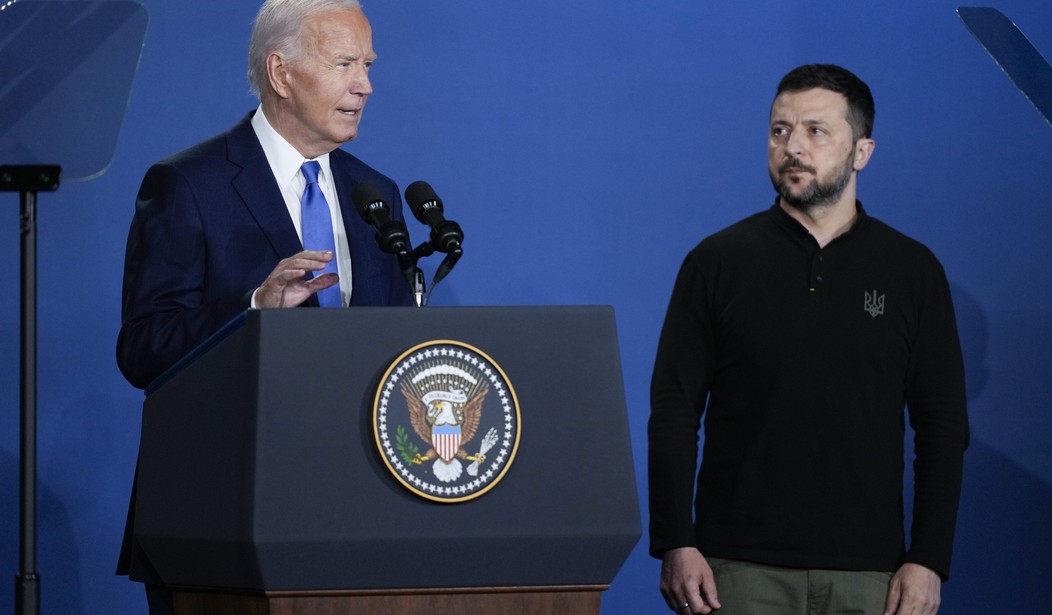If the presidential election were held tomorrow, the outcome would be uncertain. President Harris would face scrutiny for her role in shaping the current situation in Ukraine, while President Trump would inherit a conflict that has grown deadlier and more dynamic due to the weak and hesitant policies of the Biden-Harris administration. The administration's overly cautious approach has not only made the remainder of the year more perilous but may have also deprived Ukraine of the strength needed to gain leverage at the negotiating table.
To date, the Biden-Harris strategy has been characterized by half-measures and incrementalism, leading to marginal results. The U.S. has constrained Ukraine's ability to use U.S. or allied-supplied long-range precision munitions against Russian military targets inside Russia, a critical misstep. President Biden’s initial policy of not allowing Ukrainian forces to strike within Russia prevented them from destroying concentrated Russian logistics and personnel, which were poised for a springtime invasion of Kharkiv. The entire Western world knew a renewed assault from the north was imminent. Russia exploited U.S. indecision, using 'sanctuary zones' just inside its border to mass weapon systems and bombard Ukraine.
Only after significant pressure, heavy Ukrainian losses, and a near-catastrophic collapse on the Kharkiv front did President Biden partially reverse the policy, allowing Ukraine to carry out limited strikes on Russian soil. However, these strikes are still restricted to acts of self-defense with significant geographic constraints, preventing Ukraine from targeting Russian military bases and launch sites that serve as staging grounds for attacks on Ukraine, such as the site used in a missile attack on Kyiv that struck a children’s hospital.
Given the West's weakness, it is unsurprising—though embarrassing—that Ukraine took the initiative and conducted a surprise offensive into Russia's Kursk district. The Pentagon admitted it was not informed about the cross-border operation, highlighting the disconnect between U.S. policy and Ukrainian action.
Recommended
Vice Presidential nominee J.D. Vance was correct in April when he argued that the current “math on Ukraine doesn’t add up.” The current trajectory and strategy are disastrous for both Ukraine and the United States. What must change is the equation, not the U.S. commitment to a just peace for Ukraine.
A major shift in strategy would involve removing the restrictions on striking legitimate military targets in Russia. Russia uses thousands of glide bombs each month to attack critical infrastructure and troop positions. Ukrainian President Volodymyr Zelenskyy has requested air defenses to protect cities and civilians. While these systems are necessary, using interceptors to counter such a volume of glide bombs is impractical and too costly. Destroying the launch sites via long-range attack is more pragmatic and conserves scarce resources. As Speaker Johnson has stated, Ukrainians should be allowed to “prosecute the war” as they see fit.
Russian President Vladimir Putin excels at wielding time as a weapon in both politics and war, a fact the current administration has failed to grasp. An effective strategy would push Europe to do more while recognizing that time is not a resource exclusive to Putin. Ukraine cannot win a war of attrition, a strategy Russia often employs to wear down an adversary through continuous losses of people, equipment, and morale.
Releasing Army Prepositioned Stock-2 (APS-2) to Ukraine would bridge critical material gaps. These prepositioned stocks are equipment and gear stored in Europe, intended to rapidly equip U.S. units in the event of a war with Russia. Since the U.S. is not going to war with Russia, it makes sense to provide this equipment to Ukraine, which is fighting the war America prepared for. This would also cut down on logistics and delivery time, as only about half of the weapons and military equipment pledged to Ukraine by the West has been delivered. The U.S. is one of the biggest offenders in this regard.
The U.S. finds itself in this position because of the decline of its industrial base, the sluggishness of its federal procurement system, and the questionable state of its military readiness. In March 2022, for the first time in history, APS-2 equipment was issued for a U.S. military exercise in Germany, only to discover that the equipment was not fully mission-capable. It was recently reported that the European Union’s capacity to produce 155mm artillery shells might be less than half of what EU officials have claimed.
The West and Ukraine need time to produce. The Defense Production Act exists for a reason, and instead of invoking it for the manufacturing of clean energy, as Biden did in 2022, it must be applied to the current shortage of munitions and critical mineral inventories. National security is ensured when all aspects of national power are unified and employed against our enemies.
While Ukraine buys time for the West with its blood and treasure, it must also dig in. Counter-offensives have proven too costly, and when time is needed, a strategy of defense in depth, yielding space to buy time and inflict casualties on the enemy, is essential.
As Trump contemplates a potential return to the presidency, he must prepare to address a significantly more complex and challenging situation in Ukraine. Meanwhile, Harris must contend with her role in an administration whose policies have left Ukraine increasingly vulnerable. Without a strategic shift, the conflict is poised to become another U.S. foreign policy failure. A robust and adaptive strategy that empowers Ukraine to fight effectively in the short term is desperately needed and long overdue. At the same time, the U.S. must reinvigorate its industrial base and military readiness. Peace will only be achieved through strength.
Meaghan Mobbs, PhD, is the Director of the Center for American Safety and Security at Independent Women’s Forum.
























Join the conversation as a VIP Member